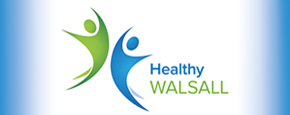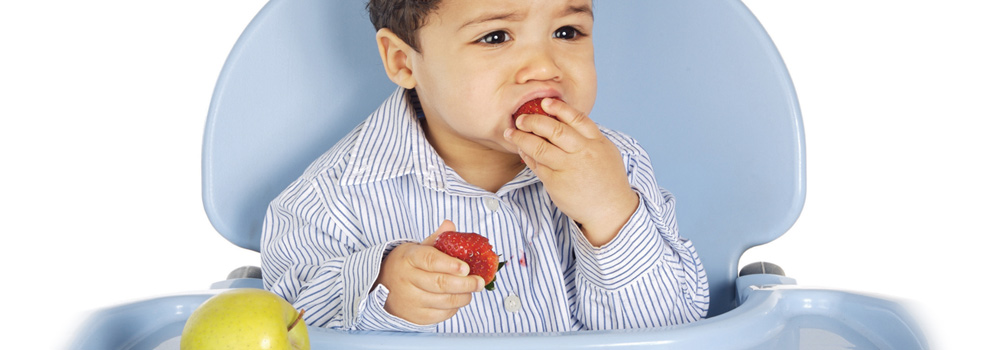Introduction to solid foods is a really important step in your child’s development.
Babies can get all the nutrients they need from breast milk until they are around six
months old. Up until this time their digestive system is still developing and it can’t yet
cope with solid foods.
To begin with, how much your baby takes is less important than getting them used
to the idea of eating. They will still be getting most of their nutrition from breast milk,
so do not stop.
Babies do not need three meals a day to start with, so you can begin by offering
foods at a time that suits you both. Gradually, you'll be able to increase the amount
and variety of food your baby eats, until they can eventually eat the same as the rest
of the family, in smaller portions. It can be great fun to explore new flavours and
textures together.
Every baby is an individual, but there are three clear signs (see below) that, together,
show your baby is ready for solid foods alongside breast milk or formula. It's very rare
for these signs to appear together before your baby is six months old.
Getting started with solid foods
-
Always stay with your baby
when they are eating in case
they start to choke.
-
Let your baby enjoy touching
food.
-
Allow your baby to feed
themselves, using their fingers,
as soon as they show an
interest.
-
Do not force your baby to eat,
this is a gradual process.
-
If you are using a spoon, wait
for your baby to open their
mouth before you offer the
food (do not try to force the
food in). Your baby may like to
hold a spoon too.
-
Start by offering just a few
pieces or teaspoons of food,
once a day.
-
Make sure you cool hot food
(and test it before giving it to
your baby).
-
Do not add salt, sugar or stock
cubes to your baby's food or in
cooking.
First foods - Include mashed or soft
cooked fruit and vegetables like parsnip,
potato, sweet potato, carrot, apple or pear,
all cooled before eating. Soft fruits like
peach or melon, or baby rice or baby
cereal mixed with your baby's usual milk,
are good as well. Do not add salt or sugar.
Finger foods - Finger food is food that is
cut up into pieces big enough for your
baby to hold. Things like slices of
cucumber, carrot, banana or melon cut
into pieces about the size of your own
finger.
Next foods - Once your baby is used to
the idea of more solid foods you can try
soft cooked meat such as chicken or
mashed fish (check for bones), pasta,
noodles, toast or pieces of chapati, rice
and mashed hard-boiled eggs. They can
also have full-fat dairy products such as
yoghurt, or fromage frais.
Whole cows' milk can be used in cooking
or mixed with food from six months.
Your baby is ready if they can:
Stay in a sitting position and hold their head steady.
Co-ordinate their eyes, hands and mouth so that they can look at the food, pick it up and put it in their mouth all by themselves
Swallow food. Babies who are not ready will push their food back out, so they get more round their face than they do in their mouths!
It is rare for these signs to appear before 6 months.
They’re sweet enough already!
If you give your baby sweet things they are likely
to get a taste for it. In fact giving babies food and
drink with added sugar or honey can cause
serious problems. Here’s why sugar is not so
sweet:
Sugar can rot their tiny teeth. Drinks with added
sugar are really bad news for baby teeth.
Giving babies sugary things makes them more
likely to pester for more.
Too much sugar means excess energy, which
can give babies a higher risk of becoming
overweight or obese. This can lead to type 2
diabetes, heart disease and some cancers in
later life.
Offer water with meals instead of sugary drinks,
and choose healthier snacks like fruit or toast,
pitta or chapati fingers.
For further information
introducing-solid-foods.pdf


